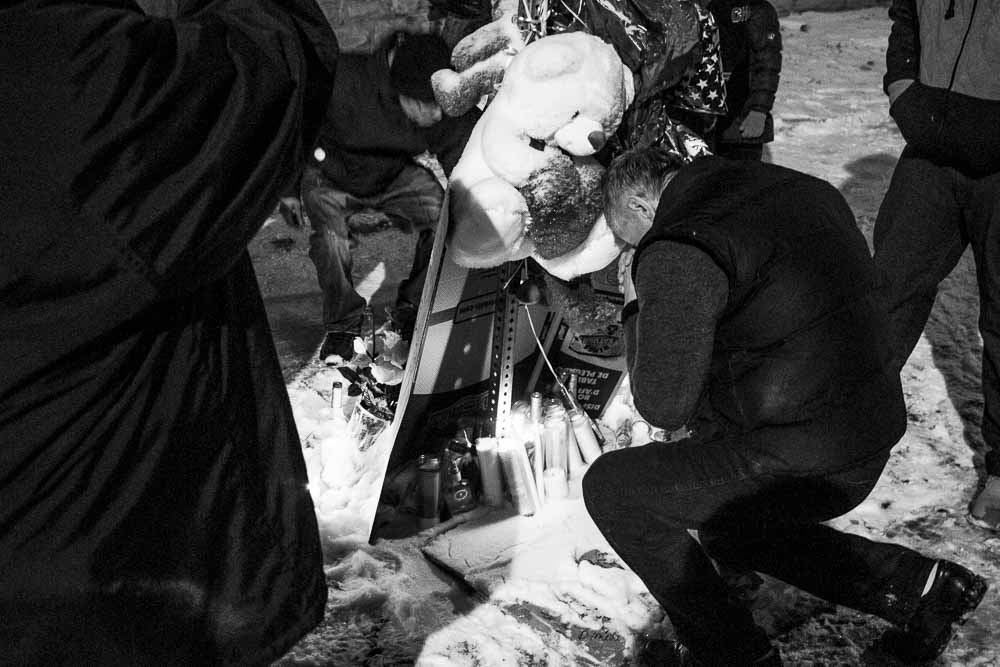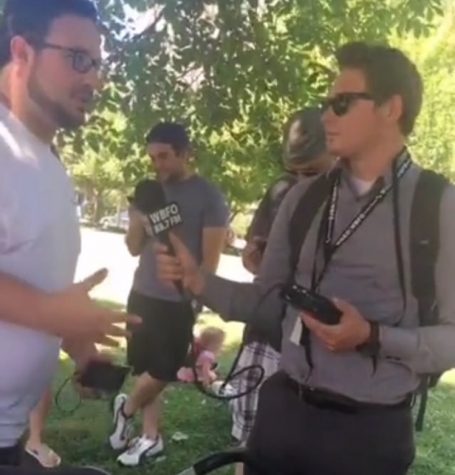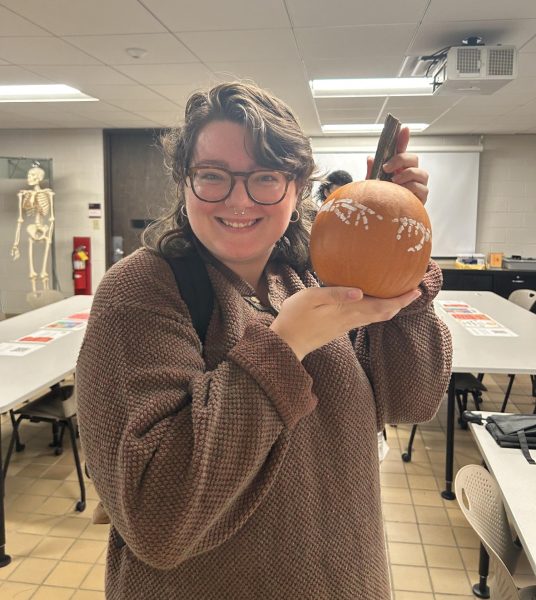“Justice for Meech” offers alternative narrative on death of Wardel “Meech” Davis
In the wake of the death of a 20-year-old Buffalo man, Buffalo State student Tito Ruiz set out to create a justified community narrative via mini-documentary
“Justice for Meech” is a 4:04 mini-documentary aiming to change the tainted narrative surrounding the February death of Wardell “Meech” Davis.
May 4, 2017
When Tito Ruiz was 13 years old, he was slammed against the hood of a Buffalo Police squad car while running home to meet curfew because he “fit the description” of a suspect the police were seeking.
When Ruiz got word that a “friendly” and “well-liked” kid he knew from his neighborhood died while in police custody, it hit him hard. It was a moment of realization. He took a step back and considered how narrowly he dodged a similar fate.
Wardel “Meech” Davis passed away on Feb. 7 at the age of 20. On Friday, April 28, media outlets announced his death was ruled a homicide due to respiratory distress – his acute bronchitis and asthma reportedly played a role. The New York State attorney general is currently investigating the circumstances of his death independently.
Police reports say Davis was seen leaving a known drug house (the Buffalo News headline read “Man, 20, dies after battling with Buffalo police during drug arrest”), but – according to Ruiz – outside sources said he was leaving the home of a handicapped elderly woman he ran errands for.
An asthmatic himself, Ruiz flashed back to his similar experience over a decade earlier. He wondered if his life ended the same way, what the narrative would have been.
“The narrative that was disseminated was not favorable to him [Davis],” Ruiz said. “I saw a smear campaign that ensued.”
Ruiz is the founder of TRu iNk Media and takes digital media production classes at Buffalo State. He’s a writer and photographer passionate about “providing a voice to the often voiceless through storytelling.”
He doesn’t make generalizations about police. He just wants the same for victims of police-related killings.
Ruiz took exception to Artvoice’s bold assertion that Davis is a “casualty of the war on drugs.”
He knows, and his 13-year-old former self knows, that the victim does not always bring death upon themselves.
Ruiz knows that – in the wake of tragedy – proper remembrance and respect for the deceased is often all a community has. And he takes personal issue with the “one-sided narrative” fed to the public that often “villainizes the victim.”
At the time of Davis’ death, Ruiz was working on another documentary (he doesn’t want to give away any spoilers as he still plans to finish it). He put the project on the back burner as he felt telling the story of Davis and the community’s reaction needed “immediate attention.”
So he decided to allow the community to create its own narrative through his camera lens for a video project in Professor Yola Stockton’s Advanced Photography: The Digital Documentary class.
“Justice for Meech” sets a resilient, resistant tone right away. Kendrick Lamar’s “Alright” – which has a chilling anti-police brutality music video of its own – plays over fast-paced shots of community protests and displays of solidarity.
15 seconds in, it quickly transitions to a somber, soulful outcry for peace and plea for humanity by way of The Game’s “Purge” featuring Stacy Barthe.
“I hung out with her [Barthe] in L.A. a few years back,” Ruiz said. “She sang for us and I was blown away. It was the first time I heard her sing. I immediately fell in love with her melodic voice.”
Ruiz effectively humanizes Davis through a succession of pictures of the face of the young man whose life was cut short. An annotation notes Davis was the 135th person to die in police custody in 2017 alone at the time of his February death. That number has risen by 257 since.
Through juxtaposition, Davis’ face lends humanity to each victim who has become a tally in the aforementioned statistics.
Photos of Meech accompanied by annotations describing what reportedly transpired the night of his death lead up to a powerful black-and-white shot of a makeshift memorial on Hoyt Street on Buffalo’s West Side.
Then Ruiz allows protesters and activists to offer an alternative narrative – one separate from the media’s, one untainted by the unfiltered comments section of news websites and social media platforms where insensitive, uninformed and judgmental opinions enrage emotionally raw, grieving communities.
“I’m sure a lot of people who demonized him – whether the public or the media – for some of the bad choices he made in the past probably had the privilege of having a parent or both parents to turn to growing up,” Ruiz said. “He didn’t – both of Meech’s parents are deceased.”
“No justice! No peace! We need justice for Meech!”
“Mayor Brown can’t you see that the cops are killing me!”
These chants are a vital part of the narrative often unmentioned by the media that Ruiz believes grieving communities need to move forward.
Ruiz offered a personal narrative in which he discusses his personal take on Davis’ death and talks about personal experiences with police in several cities around the country in a piece he wrote for The Public to accompany “Justice for Meech”:
email: [email protected]
Twitter: @Almasi_





